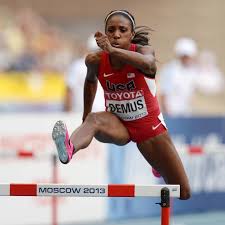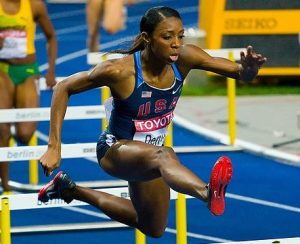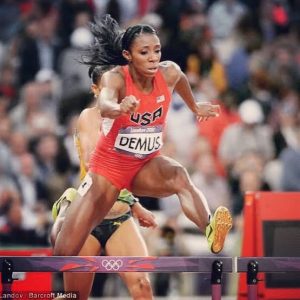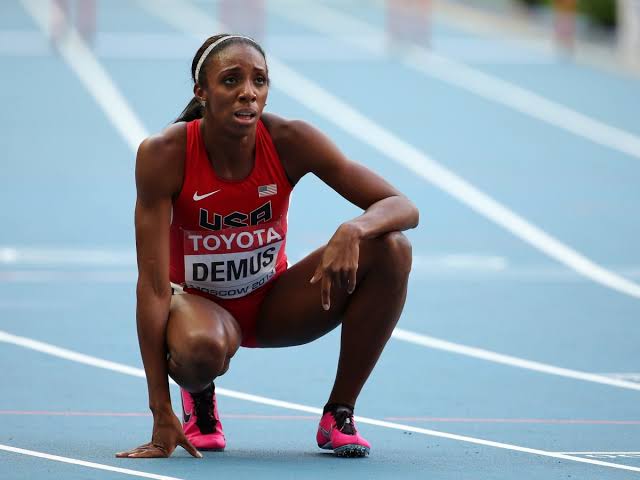Skip to content
Olympic Gold Medalist Turns Coach, Calls for Drug Testing After National High School Track Event.

In the world of track and field, integrity and fair competition are of utmost importance.
However, recent events at a national high school track meet have raised significant concerns about the potential use of performance-enhancing drugs (PEDs).

A former Olympic gold medalist-turned-coach has recently voiced his concern, calling for the introduction of drug testing in high school athletics.
This call to action comes after his observation of what he described as “unusual” performances and an apparent rise in suspicious athletic achievements at the event.

The veteran coach, who has spent years advocating for clean sport, believes that the time has come for stricter oversight to preserve the integrity of high school athletics.
The Catalyst for Change
The event in question was one of the largest national high school track meets of the year, where thousands of young athletes gathered to showcase their talents.
According to the Olympic gold medalist-turned-coach, there were several standout performances that raised eyebrows.
Notably, a few young athletes displayed astonishingly fast times in the sprints and leaps that seemed to defy typical progression for their age groups.

While records in sports are meant to be broken, the coach expressed that the scale of improvement seen at the meet appeared highly irregular.
“I’ve seen young athletes break records before, but what I witnessed at that event was unprecedented,” said the former Olympian, whose identity has been withheld for privacy reasons.
“It’s not that they’re not capable, but when the performances seem too good to be true, it makes you wonder what’s behind it all.”
The Issue of Performance-Enhancing Drugs in Youth Sports
Drug testing in professional sports is a well-established practice, but the issue of PEDs at the high school level has historically been overlooked.
High school athletes, in particular, have faced limited scrutiny when it comes to testing for illegal substances.
While the idea of doping among teenagers might seem foreign to some, the reality is that high school athletes, particularly those with aspirations of collegiate or professional careers, can face immense pressure to perform at a high level.
The introduction of performance-enhancing substances into youth sports isn’t new.
The use of steroids, stimulants, and other banned substances in youth athletics has been documented in various forms, especially in sports where physical performance is closely tied to success.
As a coach, the Olympic gold medalist has witnessed firsthand the lengths some athletes will go to in order to gain an edge.
He believes the issue is more prevalent than many may realize, and the introduction of drug testing is an essential step in curbing this problem.
Why Drug Testing Is Necessary for High School Athletes
The former Olympian’s call for drug testing is rooted in a desire to protect the integrity of the sport and to ensure that athletes are competing on a level playing field.
“We have to start thinking about the long-term effects on these athletes,” he says. “If they’re exposed to these substances at such a young age, it can have lasting consequences on their health, both physically and mentally.”
The impact of PEDs on young athletes is a growing concern.
Steroids, for example, can stunt growth, cause hormonal imbalances, and lead to severe psychological effects.
The rush to perform well on the track or field might seem appealing, but the risks associated with doping are severe and often overlooked by those focused on short-term success.
Another significant issue is the unfair advantage it gives to those who cheat.
In track and field, as in any other sport, hard work and dedication should be the primary factors determining an athlete’s success.
When drug use is involved, it creates an environment where athletes who follow the rules are at a disadvantage.
The call for drug testing is a step toward leveling the playing field and ensuring that future champions emerge from a foundation built on fair competition.
The Role of Coaches and Educators
As a coach, the Olympian believes it’s his responsibility not only to train athletes in technique and strategy but to teach them about the importance of ethical conduct in sport.
He argues that drug testing is an extension of this education.
“Coaches have a duty to guide their athletes toward making good choices,” he said.
“That includes not only teaching them how to run or jump better but also teaching them why it’s important to stay clean in the process.”
For many young athletes, coaches are the most influential figures in their lives, and the lessons they impart can shape their approach to competition.
The former Olympian hopes that by advocating for drug testing, he can raise awareness about the harmful effects of PEDs and promote healthier, fairer competition among high school athletes.
The Future of Drug Testing in Youth Athletics
The push for drug testing in high school track meets represents a growing movement within the world of youth sports.
However, implementing such measures at the high school level will require significant resources and cooperation from various stakeholders, including state athletic associations, school districts, and government bodies.
While the logistics of widespread testing may present challenges, the need for action is clear.
Ultimately, the aim is not to accuse athletes, but rather to ensure that the best and most deserving athletes are the ones who rise to the top.
The introduction of drug testing in high school athletics could be the first step toward creating a cleaner, fairer, and more equitable future for the next generation of track and field stars.
As the conversation around PEDs in high school sports continues to gain traction, it’s clear that the time has come for change.
Through the efforts of dedicated coaches and athletes like the Olympic gold medalist, the push for drug testing could usher in a new era of clean competition—one where talent and hard work are the ultimate determinants of success.








